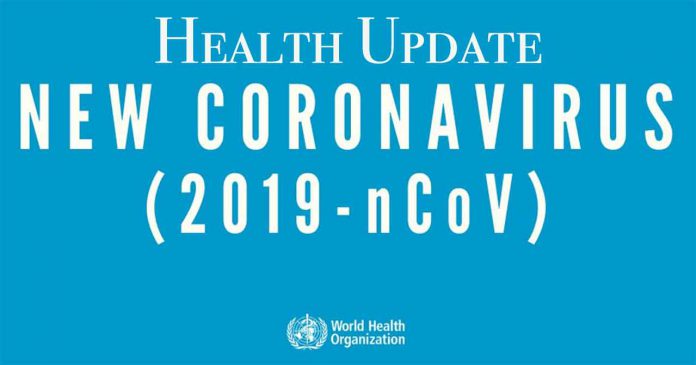What We Know for Sure:
-
WHO Not Declaring International Health Emergency
-
China has Expanded Travel Restrictions
-
Virus has killed twenty-six in China
-
Confirmed Cases in Asia, and the United States
-
Case just confirmed in Chicago
THUNDER BAY – Updated – HEALTH – Travel restrictions in the Hubei province in China have been increased as the death toll from coronavirus climbs to 26 people. Twenty million people are being impacted by these expanded restrictions including Wuhan City where the virus was first discovered.
The deaths from the coronavirus have expanded with confirmed deaths in the northern province of Hubei and northeast Heilongjiang province.
Across China, 830 confirmed cases of patients infected with coronavirus have been reported. There are smaller numbers of confirmed cases outside China. These cases which have been confirmed are in Thailand, the US, Taiwan, South Korea, Japan, Vietnam, and Singapore.
China’s expansion of travel restrictions comes on the eve of the Chinese Lunar New Year which is one of the most important dates on the Chinese calendar. It is a time when millions of people travel home for the celebrations. The move by China to expand travel restrictions at this time is a clear demonstration of the seriousness of the situation.
On Social Media people are sharing reports of long lines at hospitals and some videos of people being quarantined.
I’m not on the #WuhanCoronavirus story as a journalist this time. I’m a very concerned 武汉人 posting videos I see in chat groups. Here is a another one – the man in the video speaks with a Wuhan accent: “I’m at the Hankou Hospital… (1/2) pic.twitter.com/vRw4N4Fd67
— Xinyan Yu (@xinyanyu) January 23, 2020
My cousin in Shanghai sent me this video. Apparently this happened today: a traveller with high fever from Wuhan went straight into a quarantine cage.#WuhanCoronavirus pic.twitter.com/NtFoeHpRTn
— Adam Ni (@adam_ni) January 23, 2020
They just fall down.????#WuhanCoronavirus #Wuhan pic.twitter.com/C0mzEBntry
— ℝ???????????????????? ???????????????? ???????? (@mgajver) January 23, 2020
WHO Update – January 16, 2020
Statement by Head of the WHO January 23, 2020
I am not declaring a public health emergency of international concern today.
As it was yesterday, the Emergency Committee was divided over whether the outbreak of novel coronavirus represents a PHEIC or not.
Make no mistake. This is an emergency in China, but it has not yet become a global health emergency. It may yet become one.
WHO’s risk assessment is that the outbreak is a very high risk in China, and a high risk regionally and globally.
584 cases have now been reported to WHO, including 17 deaths. 575 of those cases and all of the deaths have been reported in China, with other cases reported in Japan, the Republic of Korea, Singapore, Thailand, the United States of America and Vietnam. We are aware of media reports of suspected cases in other countries, but those cases are still being investigated.
Let me talk about what we know.
We know that this virus can cause severe disease and that it can kill, although for most people it causes milder symptoms.
We know that among those infected, one-quarter of patients have experienced severe disease.
We know that most of those who have died had underlying health conditions such as hypertension, diabetes or cardiovascular disease that weakened their immune systems.
We know that there is human-to-human transmission in China, but for now, it appears limited to family groups and health workers caring for infected patients.
At this time, there is no evidence of human-to-human transmission outside China, but that doesn’t mean it won’t happen.
There is still a lot we don’t know. We don’t know the source of this virus, we don’t understand how easily it spreads, and we don’t fully understand its clinical features or severity.
WHO is working with our partners night and day in China and the other affected countries, at the regional level and here at headquarters to fill the gaps in our knowledge as quickly as possible.
It is likely that we will see more cases in other parts of China and other countries.
China has taken measures it believes appropriate to contain the spread of coronavirus in Wuhan and other cities.
We hope that they will be both effective and short in their duration.
For the moment, WHO does not recommend any broader restrictions on travel or trade.
We recommend exit screening at airports as part of a comprehensive set of containment measures.
All countries should have in place measures to detect cases of coronavirus, including at health facilities.
The committee has made several recommendations to prevent the further spread of the virus, which the Chair has described, and which I have accepted.
There are a few simple things we can all do to protect ourselves and each other, like washing hands, covering your mouth and nose when you sneeze, and so on.
It is expected that further international exportation of cases may appear in any country. Thus, all countries should be prepared for containment, including active surveillance, early detection, isolation and case management, contact tracing and prevention of onward spread of 2019-nCoV infection, and to share full data with WHO.
Countries are required to share information with WHO according to the IHR.
Technical advice is available here. Countries should place particular emphasis on reducing human infection, prevention of secondary transmission and international spread and contributing to the international response though multi-sectoral communication and collaboration and active participation in increasing knowledge on the virus and the disease, as well as advancing research. Countries should also follow travel advice from WHO.
To the global community
As this is a new coronavirus, and it has been previously shown that similar coronaviruses required substantial efforts for regular information sharing and research, the global community should continue to demonstrate solidarity and cooperation, in compliance with Article 44 of the IHR (2005), in supporting each other on the identification of the source of this new virus, its full potential for human-to-human transmission, preparedness for potential importation of cases, and research for developing necessary treatment.







